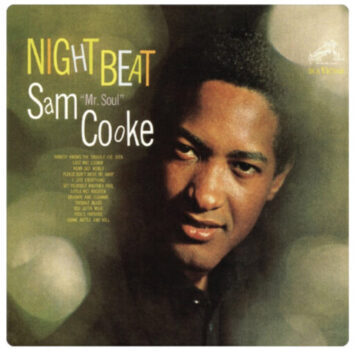Lindsey Buckingham‘s sixth solo album Seeds We Sow is an insanely great record from an insanely gifted man, an artist whose guitar talents are the match of anyone alive and whose songwriting ability is undeservedly regarded as somewhat past his prime. Not so, my friends, not so at all. In fact, the figure who transformed Fleetwood Mac from a talented blues band into the monster group of the 1970s is currently issuing some of his best work ever. This new album won’t sell millions but it deserves a place in your music library, regardless of your age, sex or preponderance of either.
Competence on the guitar is fairly commonplace, as is the facility for writing hook-laden material. What distinguished Fleetwood Mac once Lindsey joined the group was the way they came up with songs you couldn’t live without. Frankly, the only reason Lindsey’s solo stuff hasn’t commanded the same response is that several million fans kept wanting the same old same old while Lindsey was compelled to move on. He was the mastermind behind the successor to FMac’s Rumours, completely bewildering their audience with Tusk, which in retrospect moved music forward a good decade or so. Lindsey recently explained it thus:
“There was a point in time where I kind of rejected the idea that we had to do any particular thing that was expected of us, and having rejected that, the follow-up to ‘Rumours’ is a good example of making a complete left turn, and in some ways subverting the idea that there would ever be a ‘Rumours II.’
It would have been, for me, fascinating and quite humorous, probably, to be a fly on the wall watching them listen to ‘Tusk’ for the first time in the boardroom at Warner Bros. It was sort of a line in the sand that I drew. And it kind of defined the way I still think.”
The album opens with the title track “Seeds We Sow”, and quickly establishes that not only is Buckingham’s fingerpicking still blazingly quick, it is unfailingly melodic, a combination rarely found in guitarists of great technical facility. He exhibits similar flourishes on the brilliantly “Illumination” and its clever wordplay in “the process of illumination”. And “That’s The Way That Love Goes” is both classic Buckingham and classic FMac. If only the drumming on this cut were as spectacular as that of Mick Fleetwood’s (though it’s dammably good), the song would rocket up the music charts. His singing on this track is powerful too, though not in the usual fashion: it’s both delicate and unabashedly passionate, with some great dynamics. Then there’s “Stars Are Crazy” with some crazy-good acoustic guitar, powerful melody,and popsong perfection. If this track were on a 45, you’d sit there transfixed playing it over and over again in a blissed-out trance, thinking to yourself “htf does he do that?”.
The centerpiece of the record, though, is “When She Comes Down”, a ballad of anthemic proportions that can get under your skin in a first listen; more majestic than slow, more heartfelt than sentimental, and as sticky as spruce gum (the original sugar-free confection), the song is simultaneously sad and exhilarating.
Seeds We Sow was conceived as a solo project between ongoing FMac touring commitments and recently Lindsey offered this perspective on his new album:
“It was kind of like going down and painting, whereas working with a band, being more collaborative and to some degree more of a political process, you could say that’s a bit more like movie making. If you work alone, one thing you don’t have to do, necessarily, is have a completed song. You don’t have to feel like you have a whole thing to present to a group of people who are then going to judge it, edit it or filter it through their own collective sensibilities.
You can kind of have a notion of where you might want to go and, much in the way a painter would be sitting there with a blank canvas and might just start slapping colors on the canvas without knowing where it’s going, things sort of develop and open up and the work kind of leads you, so it becomes a sort of far more subconscious process – and in a certain way, a kind of meditative way of working that a band is not. You start off with something way more abstract, and the process becomes more abstract and more mysterious because of that, I think.”
There’s not a weak cut on the album and the closer, a cover of the plaintive Rolling Stones tune “She Smiled Sweetly” derives from the mid ’60s album Between The Buttons. Mick Jagger himself claimed the only decent cut on that album was “Back Street Girl”, and derided the rest of the album as ‘more or less rubbish”. Lindsey Buckingham handily puts the lie to any thought that Jagger might have a future in music commentary, as his version of this minor Stones’ ballad is revelatory in its ethereal beauty. It’s a fitting ending to a stunning record that could well be the indie-rock Album of The Year.




I LOVE THIS ALBUM!! THE BEST MUSIC I’VE HEARD FOR A LONG TIME. THIS TOTALLY SURPASSES STEVIES NEW ALBUM. LINDSEY IS A GENIUS!!